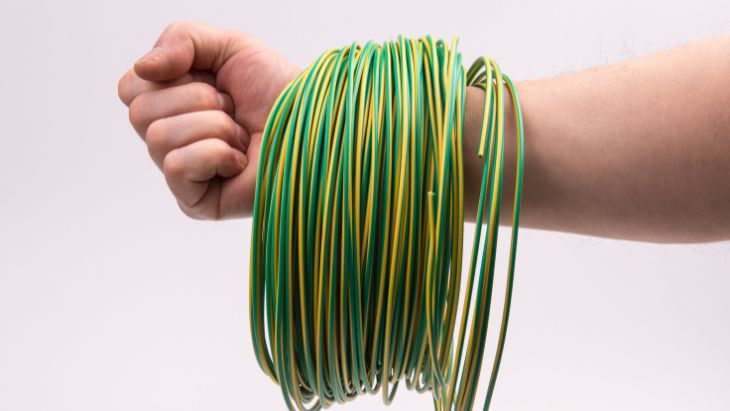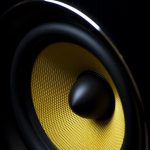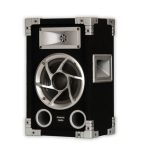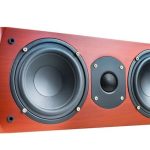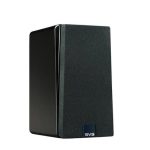Whether you are running speaker wire for your home audio or car audio, it is important to take note of the speaker wire length. After all, you do not want to do all the hard work of setting up your speakers only to end up with poor sound quality. Now, the question that comes to mind is how long you can run speaker wire without impacting quality. In this article, you will learn how long you can run speaker wire.
How Long Can You Run Speaker Wire
Running speaker wire in your car or small home theater room may not be a major concern due to the small cable length involved. However, when wiring speaker wire across an entire house, outdoor event, or indoor event in a large venue, you need to take note of its length. If you run speaker wire over a long distance, will it reduce the quality of the signal? Let’s find out.
Essentially, the maximum length to run a speaker wire mainly depends on the impedance rating of the speaker wire and the speaker wire gauge. The rule of the thumb is that the overall resistance of the speaker wire should not exceed 5 percent of the speaker impedance. With that in mind, more wire gauge results in higher impedance, hence the longer you can run the speaker wire.
It is also good to note that you can run speaker wire to a distance of up to 50 feet, but only if your music system has a power amp or mixer. If you exceed 50 feet, the overall sound quality will be lower as a result of signal loss. If you are using the output level of a musical instrument such as a keyboard or guitar, do not run the speaker wire longer than 20 feet.
How Long Can You Run Speaker Wire Indoors and Outdoors?
When running speaker wire indoors, ensure you are using the proper speaker wire. The speaker wire should be certified for indoor use. Their certification ensures that the wire can be run safely near flammable equipment or indoor heat. If you use the wrong speaker wire, your property and life may be in danger. Similarly, when running speaker wire outdoors, ensure the speaker wire is rated for outdoor use. It should be able to withstand outdoor elements such as sunlight and moisture.
Whether you are running speaker wire indoors or outdoors, the thickness of the wire (measured in gauge) will determine how long you will run it without affecting the sound quality. The speaker wire gauge is represented in AWG. AWG is an abbreviation for American Wire Gauge. The higher the gauge number, the thinner the wire.
The standard gauge sizes you will find are 18, 16, 14, 12, and 10 AWG. In this case, 18 AWG is the thinnest speaker wire whereas 10 AWG is the thickest speaker wire. It is the thickness of a speaker wire that determines the efficiency of transferring a sound signal. More thickness means better sound signal transmission. Also, thicker wire helps a sound signal to travel farther with better quality.
However, the speaker impedance also determines the distance you can run a certain wire gauge. A lower impedance rating results in a shorter speaker wire run when comparing the same wire gauge. For instance, a 12 gauge speaker wire with a load of 4 ohms will run a shorter length than a 12 gauge speaker wire with a load of 8 ohms.
How Long Can You Run 14 Gauge Speaker Wire
A speaker wire with a thickness of 14 AWG can be described as having an average thickness. It is thinner than 10 and 12 AWG but thicker than 16 and 18 AWG. The length you can run it mainly depends on the kind of speaker you are connecting.
The speaker you connect will have some pressure on the signal transfer. Generally, speakers come with an impedance of 4 ohms, 6 ohms, or 8 ohms. With a 14 AWG cable, you will run it up to 40 feet for a 4-ohm speaker, up to 60 feet for a 6-ohm speaker, and up to 80 feet for an 8-ohm speaker.
How Long Can You Run 16 Gauge Speaker Wire
The distance you can run a 16 gauge speaker wire also depends on the speaker load. Since 16 AWG is thinner, it will run a shorter distance than 14 AWG. With a 16 AWG speaker wire, you can run the speaker wire up to 24 feet with a 4-ohm speaker, up to 36 feet with a 6-ohm speaker, and up to 48 feet with an 8-ohm speaker.
Is There a Minimum Speaker Wire Length?
There is no minimum speaker wire length. As long as you are making a complete connection, you can install the shortest cable possible. Just ensure you do not exceed the recommended cable length depending on the impedance of the speaker and the cable thickness.
How Long Can You Run Speaker Wire Surround Sound
When running speaker wire for surround sound, observe the same lengths for 14 gauge and 16 gauge speaker wire. The load on the speaker wire will determine how long you can run the speaker wire. Just ensure you get the right wire gauge for the length you want to run the speaker wire. Also, ensure you choose a certified cable for indoor use.
Recommended Speaker Wire Length Chart
| Speaker Wire Gauge | 4 ohm Speaker Impedance | 6 ohm Speaker Impedance | 8 ohm Speaker Impedance |
| 18 AWG | 16ft | 24ft | 32ft |
| 16 AWG | 24ft | 36ft | 48ft |
| 14 AWG | 40ft | 60ft | 80ft |
| 12 AWG | 60ft | 90ft | 120ft |
Conclusion
Now that you know how long you can run speaker wire without impacting quality, you will find it easier to maintain high-quality sound output when setting up your music system. Remember that a thicker wire (smaller gauge) can run longer than a thinner wire (bigger gauge). Also, a higher impedance rating allows for running the speaker wire longer.
Michael Evanchuk is a San Francisco-based sound engineer with 20 years’ experience installing, troubleshooting, and repairing commercial, automotive, and household sound equipment. Evanchuk owns an auto stereo center, where he offers highly competitive car audio installation and repair services. He has written dozens of articles on different sound engineering topics, all of which have been published in leading journals, blogs, and websites.

